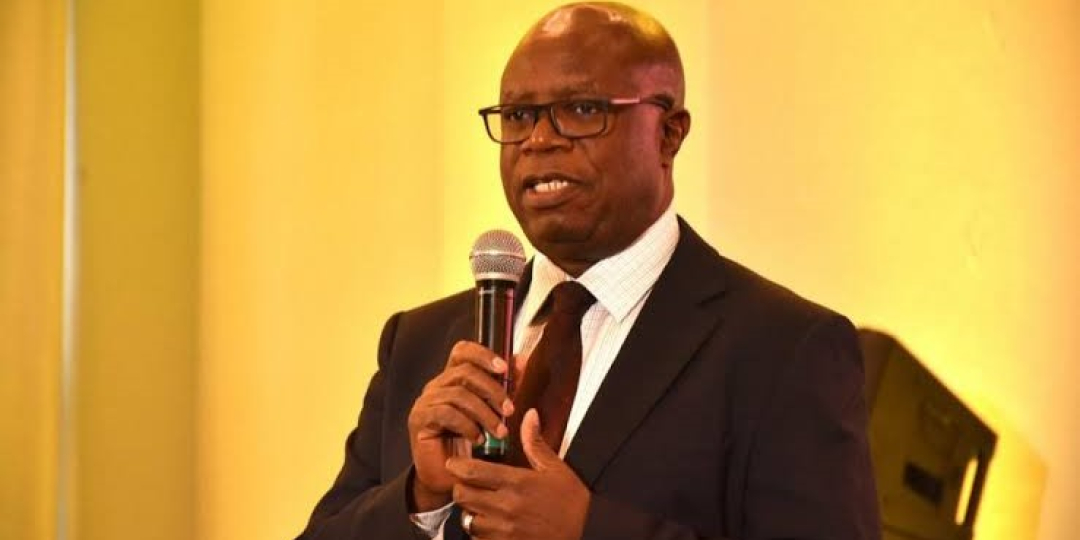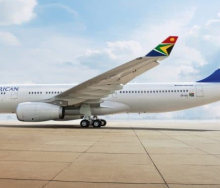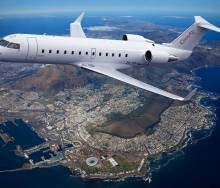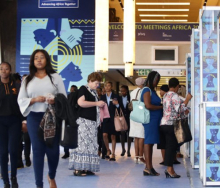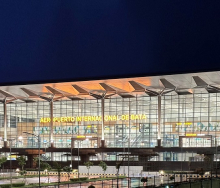A rash of incidents over the past few weeks, indicating problems in provision and/or maintenance of the infrastructure provided by the South African government for the aviation industry, have raised eyebrows.
Aaron Munetsi, CEO of the Airlines Association of Southern Africa (AASA) has called on the Minister of Transport, Barbara Creecy, to intervene and ensure these avoidable failures are resolved, and fast.
Munetsi voiced airlines’ concerns about the current situation and sent out a strong message in a statement saying that the recent failure of infrastructure, along with other missteps by government affecting aviation, all signalled an indifference to the aviation industry and a failure by government to grasp its significant contribution to the country’s economy.
“Sunday evening’s power outage at Cape Town International Airport caused numerous local and foreign airlines’ flights to and from the airport to be delayed and diverted, inconveniencing travellers and burdening carriers with additional costs and strained operations.
“The breakdown at this economically strategic facility follows the Air Traffic Navigation Service’s (ATNS) indefinite suspension of flight approaches to nine of the country’s airports after it missed a deadline to complete mandatory reviews and to re-design any approaches that it found to be unfit for purpose.
“The withdrawal of flight approaches, which are aviation’s equivalent to blocking motorway offramps, is forcing airlines to divert, delay or cancel flights, especially at those airports where all the previously available approaches have been suspended. For those particular airports, landings are now only permitted when there is sufficient clear visibility at a height above the ground and beneath any clouds, from where pilots can safely descend and touchdown on the runway. However, this is impossible when there is fog, smog, low-lying mist and rain, which are prevalent in winter during the early mornings and late afternoons/evenings.
“Flight schedule disruptions are financial hammer blows to airlines. Their customers lose confidence resulting in lost sales, ticket cancellations and refunds. Simultaneously, they are saddled with additional costs, including extra fuel and ground handling for diverted flights, re-accommodating passengers, landing and parking charges at the diversion airports. They also have to pay ATNS for the extra en-route navigation and air traffic control charges associated with any diversions.
“These suspensions also have serious harmful economic ramifications for businesses, industry, trade, essential and emergency services as well as people’s livelihoods in towns such as Kimberley, George, Polokwane, Mthatha and Richards Bay, whose airports are the worst-affected by the suspensions.
“Compounding the distress is news that South Africa’s domestic and international air services licensing councils – the industry’s economic regulators – have halted their work because the Department of Transport has not paid council members for their time and effort in performing their duties. This completely stops the national objective of expanding passenger and cargo air services to enable trade, business and leisure travel and tourism. The work of these two councils is vital to the wellbeing of the industry and the economy.
“For over two years we have also faced disruptions at our airports linked to the problematic integration and functionality of the Department of Home Affairs’ new biometrically-powered border and identity verification systems and hardware.
“The breakdowns, bottlenecks and withdrawal of critical air transport infrastructure and services – which airlines and passengers all pay for in the form of user charges, levies and taxes on air travel – signal an indifference to the aviation industry and a failure to grasp its significant contribution to the country’s economy. Various studies and reports, including those published by the African Civil Aviation Commission, the International Air Transport Association and Oxford Economics, indicate that every rand spent on air transport in South Africa contributes approximately six rands in economic activity, which, in turn, sustains and creates desperately needed jobs and livelihoods.
“The country needs to harness aviation’s potential and treat air connectivity as a key pillar in its strategy to recover the economy, create jobs and restore its competitiveness. On behalf of all its members, the Airlines Association of Southern Africa urges the Minister of Transport, Barbara Creecy, to intervene and ensure these avoidable failures are resolved expeditiously before irreparable economic harm is done and jobs are sacrificed.
“Government must act and ensure its entities responsible for providing world-class aviation services and infrastructure – the Department of Transport, Acsa, ATNS and the SACAA (which now houses the two licensing councils) – to prevent these kinds of disruptions and deliver on their mandate of enabling safe, reliable, efficient and accessible passenger and cargo air transport. This will let airlines play their role in fixing and growing South Africa’s economy.
“Without swift and decisive interventions, South Africa will score an own goal it simply cannot afford.”
